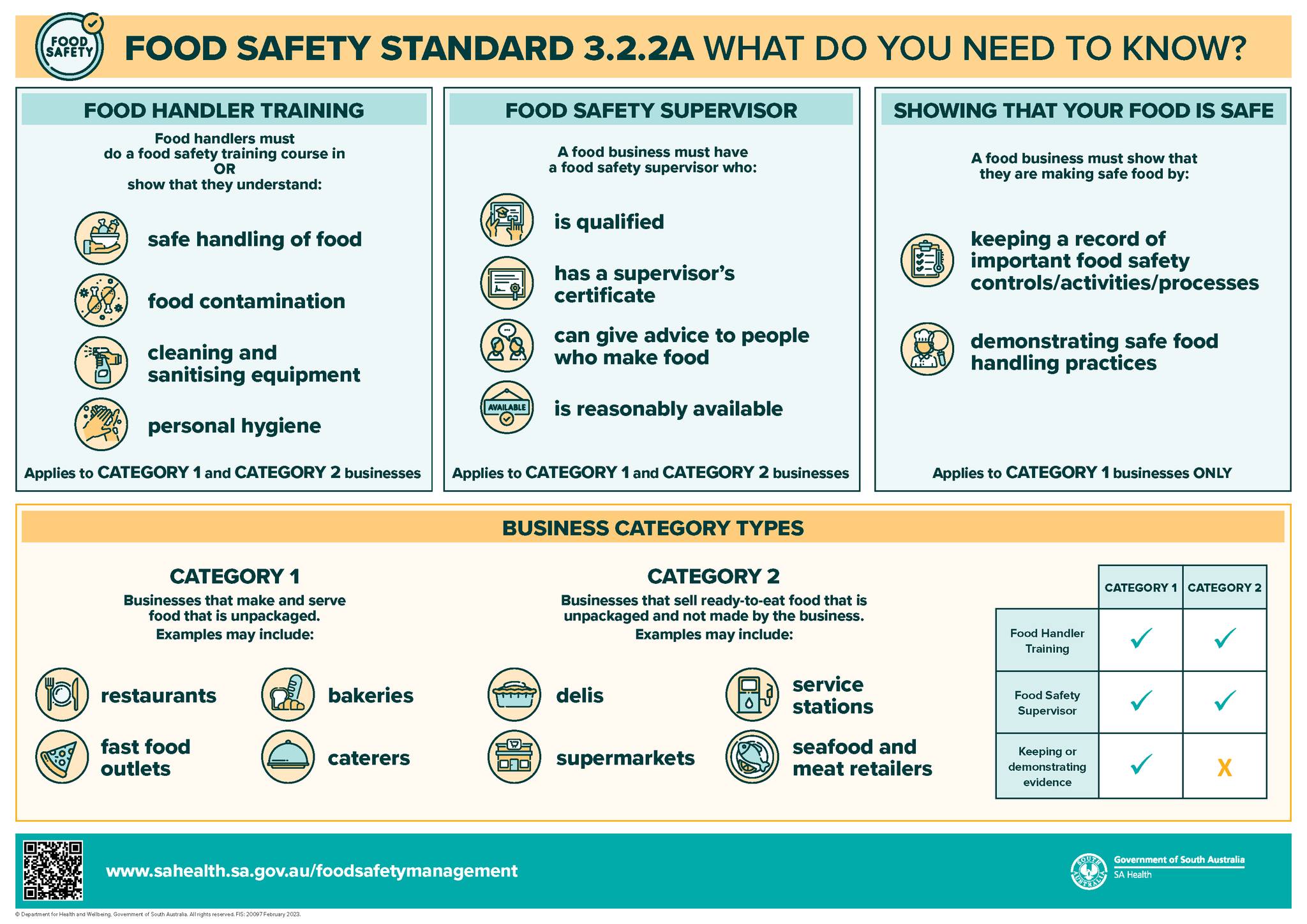New Food Safety Requirements for Food Businesses in SA
CHANGES TO FOOD SAFETY STANDARDS
In effect from 8 December 2023

Majority of food-handling businesses in South Australia will be impacted by a new Food Safety Standard (3.2.2A - Food Safety Management Tools) that has recently come into effect. You may be affected if you operate one of the following:
- Restaurant
- Café
- Supermarket
- Petrol station
- Deli
- Takeaway food store or truck
- Sporting or community club
- or sell ready-to-eat, unpackaged food
The Standard introduces new requirements for all food service, catering, and retail businesses that handle unpackaged, ready-to-eat, and potentially hazardous foods.
Impacted businesses must implement either two or three new food safety management tools, depending on their category (see image for reference), which is based on the risk of the food handling activities of the business.
The tools are:
- mandatory food handler training
- implementation of a food safety supervisor
- substantiation of key food handling activities
Food Handler Training
The food handler training tool requires food handlers who handle high risk foods to complete a food safety training course in, or be able to show they understand, safe handling of food, food contamination, cleaning and sanitising equipment, and personal hygiene. The business must make sure their food handlers have adequate skills and knowledge before they start working with high-risk foods.
The free, online DoFoodSafely training program is an example of a food safety training course and is available in multiple languages. Training may also be delivered from other online platforms, Registered Training Organisations (RTOs), in-house programs or local government food safety regulators.
See also the Food handler training frequently asked questions.
Food Safety Supervisor
The supervision of food handlers tool requires businesses to appoint a qualified food safety supervisor who is available to oversee day to day food handling operations, help food handlers to handle food safely, and make sure food safety risks are managed. The food safety supervisor must have been certified within the last five years.
View the list of organisations who can offer food safety supervisor certification in SA.
For a complete list of Registered Training Organisations (RTOs) that offer the FSS skill sets/units nationally search the course unit names or codes on the training.gov.au website.
See also the Food Safety Supervision frequently asked questions.
Showing you are managing food safety controls
Food businesses must show that they’re meeting the prescribed provisions by keeping a record or by demonstrating compliance to their food safety regulator, in the same way they already show regulators they’re meeting these existing food safety standards.
Businesses can show they are managing key food safety controls by keeping written or electronic records, making a note on invoices, taking photos, having written standard operating procedures, and walking and talking through the process with the food safety regulator. Templates are available to assist with record keeping and if made, records must be kept for at least 3 months.
See also the Managing prescribed provisions frequently asked questions.
Affected businesses must implement the Standards before 8 December 2023.
If you have any queries about how the new Food Safety Standard will impact your business, please contact Council’s Environmental Health Officer, Michelle Jordan, on 08 8584 8000 or council@lwdc.sa.gov.au.
Michelle is also available to assist you and your business in how to comply with the new standards. Please use the contact details above to enquire about a site visit.
Further information can be found on SA Health’s website.

